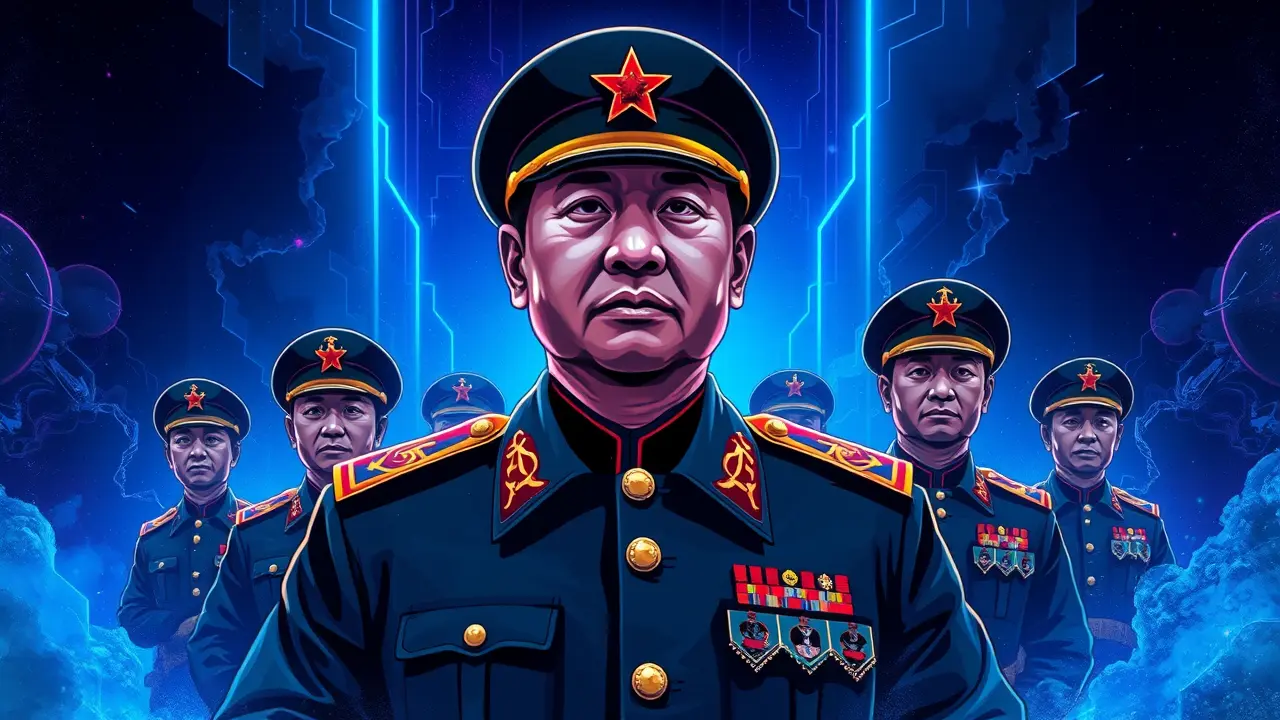
Politicsconflict & defenseMilitary Operations
China's Top General Vows to Eliminate Fake Loyalty in Military
RO
Robert Hayes
5 hours ago7 min read1 comments
In a move that echoes the historical purges which have periodically reshaped the People's Liberation Army, China's top general, Zhang Youxia, has issued a stark vow to eradicate what he termed 'fake loyalty' and 'two-faced men' from the military's ranks, simultaneously demanding an accelerated pace for weapons development in the forthcoming 2026-2030 five-year plan. General Zhang, a vice-chairman of the Central Military Commission and a stalwart member of the Politburo, made these declarations not in a public speech but within the weighty, collective pages of a policy compendium supporting the Communist Party's future directives, a format that underscores the doctrinal and ideological significance of his message.This call to arms against internal dissent is far from a novel concept in the annals of Chinese statecraft; one need only recall the tumultuous era of the Cultural Revolution or the more recent, sweeping anti-corruption campaign orchestrated under Xi Jinping, which saw the downfall of senior generals like Guo Boxiong and Xu Caihou, to understand that the party's relationship with its military guardians is perpetually one of vigilant mastery, demanding not just competence but absolute, demonstrable fealty. The phrase 'two-faced men' is particularly potent, a classic piece of political rhetoric that conjures images of hidden betrayals and ideological impurity, suggesting a deep-seated anxiety within the upper echelons of power that loyalty to the person of Xi Jinping, who holds the dual titles of party leader and military commander, may be more performative than genuine among certain flag officers.This internal rectification campaign is intrinsically linked to the external goal of rapid weapons advancement; a military perceived as politically unreliable is a military that cannot be trusted with the sophisticated technologies—from hypersonic missiles to advanced cyber warfare capabilities—that Beijing sees as essential for its strategic competition with the United States. Analysts watching from Washington and Tokyo will interpret this as a clear signal that Xi is doubling down on his efforts to forge a military that is both technologically peerless and politically unassailable, a force capable of projecting power in the South China Sea and towards Taiwan while remaining impervious to the kind of internal factionalism that has historically crippled great powers.The consequences of this dual-pronged directive are profound: expect a new wave of political indoctrination sessions within barracks, intensified scrutiny of officers' personal and financial connections, and a likely reshuffling of commands to place those with proven loyalties in control of the most sensitive new weapons programs. Yet, this drive for ideological purity carries its own risks, potentially stifling the very innovation and critical thinking required for modern warfare, and creating an atmosphere of suspicion that could paralyze decision-making in a crisis. In the grand chessboard of global politics, General Zhang's article is a deliberate move, signaling to both domestic and international audiences that under Xi Jinping, the PLA's transformation into a party army, first and foremost, is an unfinished revolution, and that the coming half-decade will be defined by a relentless internal crusade to ensure that every soldier, from the general to the grunt, is a true believer.
#featured
#China
#military
#loyalty
#weapons
#five-year plan
#General Zhang Youxia
Stay Informed. Act Smarter.
Get weekly highlights, major headlines, and expert insights — then put your knowledge to work in our live prediction markets.
© 2025 Outpoll Service LTD. All rights reserved.